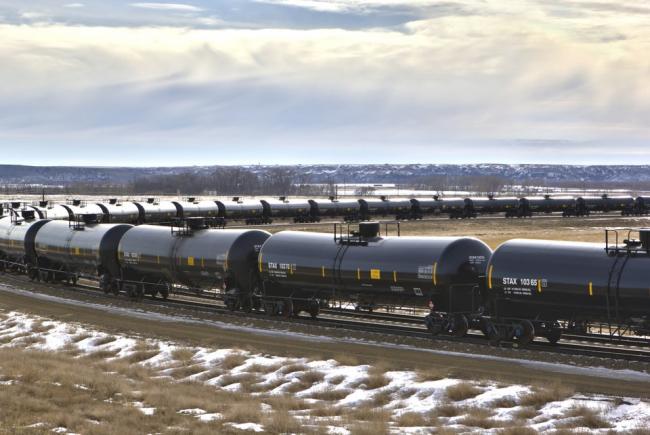Articles Menu

OTTAWA/VANCOUVER — Canada’s federal government is considering a proposal from its main oil producing province of Alberta to share the cost of buying rail cars to move oil stuck in the region because of a lack of pipeline capacity, said two sources with direct knowledge of the matter.
The lack of pipelines has caused Western Canadian oil producers to struggle to move oil to refineries in the United States, resulting in record low prices for Canadian crude. That has prompted the Alberta government to take urgent measures to shore up the industry, which drives its economy and accounts for significant government revenues.
The province has proposed adding enough rail cars to ship an additional 120,000 barrels per day (bpd) of crude oil, with the first round of cars to be in service in July 2019 and the full capacity online by October 2019, running until 2022, the sources said. However, the federal government in the capital of Ottawa has some reservations about the plan, the sources added.
The Alberta government estimates the one-time capital cost of adding the extra rail capacity at about $350 million (US$264.6 million), with the total operating costs spread over three years estimated at about $2.6 billion, the sources said.
Those costs would be partly offset by charging oil shippers to use the cars, generating some $2 billion for the governments, they added.
The 120,000 bpd of rail capacity is nearly equal to the current amount of stranded supply.
A spokeswoman for Alberta Premier Rachel Notley would not confirm the details of the proposal, but said the premier has previously said she wanted to add 120,000 bpd of capacity.
Alberta’s finance minister, Joe Ceci, told reporters on Wednesday the province had asked Ottawa for support on capacity expansions and said he was disappointed that crude-by-rail spending was not included as an expenditure line in a fiscal update released by Canadian Finance Minister Bill Morneau earlier in the day.
Pierre-Olivier Herbert, a spokesman for Morneau, said the government is in constant discussions with key industry players and the government of Alberta on how to better support the energy sector.
The two sources said Ottawa had reservations about Alberta’s proposal as the federal government felt the situation would ease.
“We are prepared to help but we want to focus on something that could have an effect now and not in 18 months time,” said one of the sources.
One of the reasons for the glut is closed U.S refineries, which are due to start up again by the end of the year. The sources also noted that Enbridge Inc’s Line 3 pipeline expansion, linking Alberta to U.S. refineries, is scheduled to start operation late next year.
“If you started getting these cars in October (2019), you would sort of be fixing a problem that’s already almost solved,” said the second source, adding that Ottawa would spend a few weeks studying the province’s ideas.
Alberta made the proposal as the price for its benchmark Western Canadian Select crude for December delivery has dropped to US$13.65 per barrel, after factoring a discount of US$40.75 to the North American benchmark West Texas Intermediate futures price.
The railways are adding locomotives and workers to their fleets, but the supply of tank cars is tight, with some older models being phased out.“(Customers) start banging on the door at 7 in the morning and we turn out the lights at midnight,” said John Zahary, chief executive of Altex Energy, which operates rail terminals.
“They’re desperate — the guys buying the oil want this cheap stuff and the railways seem to have capacity. It’s finding rail cars that is the issue,” he said in an interview.
Low prices have led several major Canadian producers, including Canadian Natural Resources Ltd and Cenovus Energy Inc to curtail production this quarter, and called for Alberta to mandate output cuts.
Western Canada’s crude oil bottlenecks and low prices are costing the country’s economy some $80 million per day, Alberta Notley said this week.